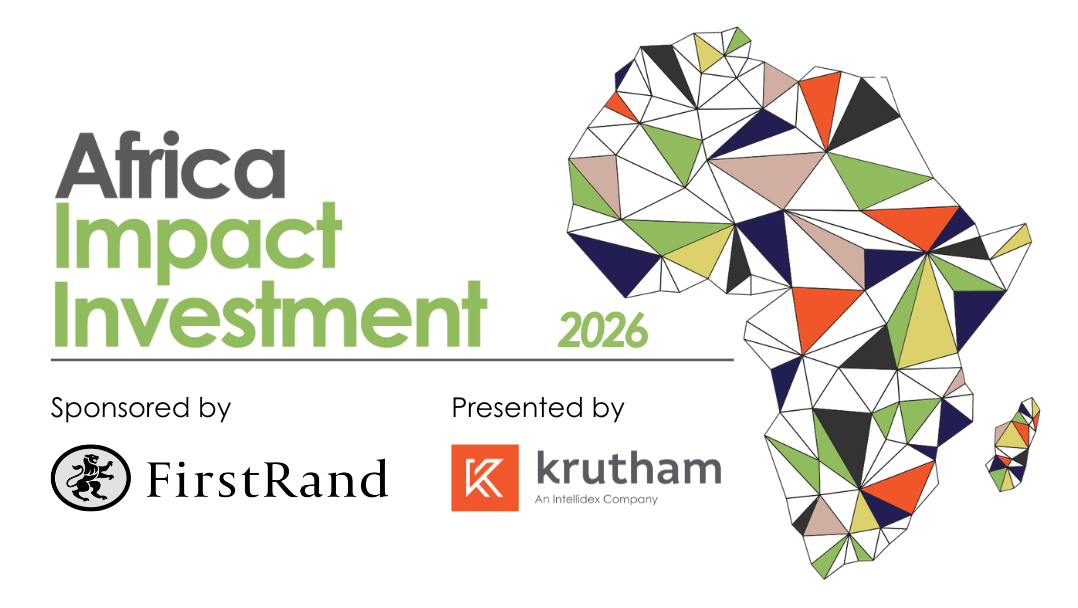This award recognises those fund managers who have a dedicated impact investment fund within their overall portfolio.
Alitheia Capital
Background
With a $100m mandate to proactively invest in gender smart businesses, Alitheia IDF (AIF) is Africa’s first and largest gender lens investment private equity fund. AIF exists to improve financial and social outcomes for women by driving investment into a diversified portfolio of women-owned, women-led or women-serving small and medium-sized enterprises (SMEs) as a pathway towards achieving the Sustainable Development Goals and ensuring inclusive economic growth. In addition, the fund seeks to demonstrate the viability of gender lens investing as an investment strategy that yields superior financial and social returns. AIF targets expansion-ready SMEs that operate in its priority sectors – agribusiness and essential goods/services – and equips them with the catalytic capital, strategy and business support needed to scale.
Originality of design
Up to 90% of consumer needs are met by SMEs, as they are the engines of growth in Africa. However, this segment is often overlooked by typical institutional funding and the businesses remain undercapitalised. AIF provides access to finance and other resources to SMEs to enable them to grow and scale. Initial investment tickets are between $3m and $5m for a significant minority stake in companies. The companies must have a proven business model, be ready to scale regionally or internationally, and have a turnover below $10m, or less than 200 employees, or assets worth less than $10m. By strategically guiding the business, operating practices, corporate governance and expansion, AIF grows the share value of its portfolio companies during the investment period of five to seven years. The fund uses equity, convertible loan notes and mezzanine instruments to appropriately capitalise and structure businesses for growth. Value is realised through self-liquidating instruments or upon exit of the investments.
Meeting unfilled needs
As already stated, the fund provides access to finance and other resources to SMEs to fuel their growth and enable them scale. Through targeting often overlooked companies, AIF ensures both top line growth as well as environmental, social and governance (ESG) and social impact improvements to create superior financial and social returns on all its investments.
Theory of change
If AIF provides finance and other resources to gender smart businesses, particularly SMEs, then more customer needs would be met adequately as these SMEs would be able to scale. Additionally, gender inequality would be reduced.
Impact thesis
As a gender lens investing fund, AIF is anchored on the premise of diversity and inclusion – investing in women as an underserved market and leveraging diversity as a source of alpha in generating competitive financial and social returns. AIF’s impact efforts are geared towards increasing accessibility to affordability for, or inclusion of, an underserved market or group.
AIF provides capital and value addition to businesses where:
- A minimum of 50% women ownership, leadership and/or management is
- Gender diverse or male leadership demonstrate the intent to integrate gender inclusive strategies with middle management and
- Women and/or girls are primary consumers and/or producers along the business’ value and supply
- The business strategy is to significantly increase access of women and girls to essential
By providing capital to women-led businesses and gender diverse teams, AIF impacts on the inclusion of more women as economic participants, reducing gender disparity and contributing to economic and social development. Specifically, AIF’s investments aim to increase income/wealth in the hands of women; increase proportion and participation of women in the supply chain; and increase the number of women and girls with access to essential services and goods.
SDG linkages







Impact
AIF embeds gender dimensions and outcomes at every stage of the investment process, from eligibility to exit. At pre-investment, eligibility is determined by all four direct criteria of the 2X Challenge. Additionally, considerations include women’s participation in supply and/or value chains. Based on the assessment of its gender performance, the SME is placed on a spectrum ranging from gender negative to gender strategic, and a gender value creation plan is implemented to track and improve outcomes for women and the gender smartness of the SME throughout the investment period.
Beyond its direct investment activity, AIF demonstrates commitment to improving economic outcomes for women by running Nzinga and Think Scale. These are boot camps which focus on developing the capacity and skills of gender diverse businesses and preparing them for institutional capital and expansion for scale. In addition to gender-specific outcomes, the investments also drive additional capital for investment, job creation, tax generation and export promotion, ultimately leading to growth and development in the economy and increased economic independence of women.
The investment guidelines are underpinned by a robust Environmental and Social Management System (ESMS) as informed by the International Finance Corporation (IFC) Performance standards, World Bank Environmental, Health and Safety (EHS) Standards, and the African Development Bank (AfDB) Integrated Safeguards System, among others. At the end of 2022, AIF had invested in nine companies across Nigeria, Ghana and South Africa. Seven of the nine companies are women-owned (77%). From inception, jobs have grown more than 1,000%, and more than half of these are for women. At the end of the fund life, AIF would have invested in 13 SMEs; created 23,000 jobs; enabled access to essential services for 5 million women and girls; and touched 15 million lives.
Financial performance
By 2021, the fund had invested $10.9m.
Potential for replicability
The model can be replicated across different markets and sectors. In fact, AIF developed a Gender Lens Investing Toolkit which can be used as a guide when taking the gender lens approach to investing. That there is an estimated $42bn funding gap between men- and women-owned SMEs in Africa highlights the need for gender lens investing across different countries and sectors on the continent.
Risks
Investing with a gender lens, AIF uses its proprietary toolkit to create better outcomes in businesses, lower risk and enhance financial, economic and social returns in gender diverse value chains.
Additionally, AIF’s holistic and value-adding approach to ESG identifies not only the embedded and apparent risks, but also the potential opportunities in prospective investments.
Click here to download the case studyShare
This research report was issued by Krutham South Africa Pty Ltd.
Krutham aims to deliver impartial and objective assessments of securities, companies or other subjects. This document is issued for information purposes only and is not an offer to purchase or sell investments or related financial instruments. Individuals should undertake their own analysis and/or seek professional advice based on their specific needs before purchasing or selling investments.
The information contained in this report is based on sources that Krutham believes to be reliable, but Krutham makes no representations or warranties regarding the completeness, accuracy or reliability of any information, facts, estimates, forecasts or opinions contained in this document. The information and opinions could change at any time without prior notice. Krutham is under no obligation to inform any recipient of this document of any such changes.
No part of this report should be considered as a credit rating or ratings product, nor as ratings advice.
Krutham does not provide ratings on any sovereign or corporate entity for any client.
Krutham, its directors, officers, staff, agents or associates shall have no liability for any loss or damage of any nature arising from the use of this document.
Disclosure
The opinions or recommendations contained in this report represent the true views of the analyst(s) responsible for preparing the report. The analyst’s remuneration is not affected by the opinions or recommendations contained in this report, although his/her remuneration may be affected by the overall quality of their research, feedback from clients and the financial performance of Krutham group entities.
Krutham staff may hold positions in financial instruments or derivatives thereof which are discussed in this document. Trades by staff are subject to Krutham’s code of conduct which can be obtained by emailing mail@krutham.com.
Krutham may have, or be seeking to have, a consulting or other professional relationship with the companies, sovereigns or individuals mentioned in this report. A copy of Krutham’s conflicts of interest policy is available on request by emailing mail@krutham.com. Relevant specific conflicts of interest will be listed here if they exist.
- Krutham provides independent advice and independent research to a wide range of investors and financial institutions on Eskom, Denel, Transnet, Land Bank and SAA. Krutham’s interactions with all clients on Eskom, Denel, Transnet, Land Bank and SAA may include business confidential information but does not include MNPI and so does not provide a conflict. Krutham does not ‘act’ or ‘advocate’ for or ‘represent’ any of these clients. Krutham has regular interactions with government, Eskom, Denel, Transnet, Land Bank, SAA and other related entities connected with the SOE situation but does not provide paid consulting services or paid advice to any of these entities. These interactions are governed by Krutham’s own conflicts of interest policy as well as secrecy rules of the respective institutions or state-owned companies.
- Krutham provides a range of services into ‘organised business’ groupings in South Africa, which includes independent bespoke research and advice. Krutham is compensated for these services. Krutham does not ‘act for’ or ‘advocate’ for or ‘represent’ any of these clients.
- Krutham is currently involved in policy design work on a number of government priorities.
Copyright © 2023. All rights reserved. This document is copyrighted to Krutham South Africa Pty Ltd.
This report is only intended for the direct recipient of this report from a Krutham group company employee and may not be distributed in any form without prior permission. Prior written permission must be obtained before using the content of this report in other forms including for media, commercial or non-commercial benefit.

